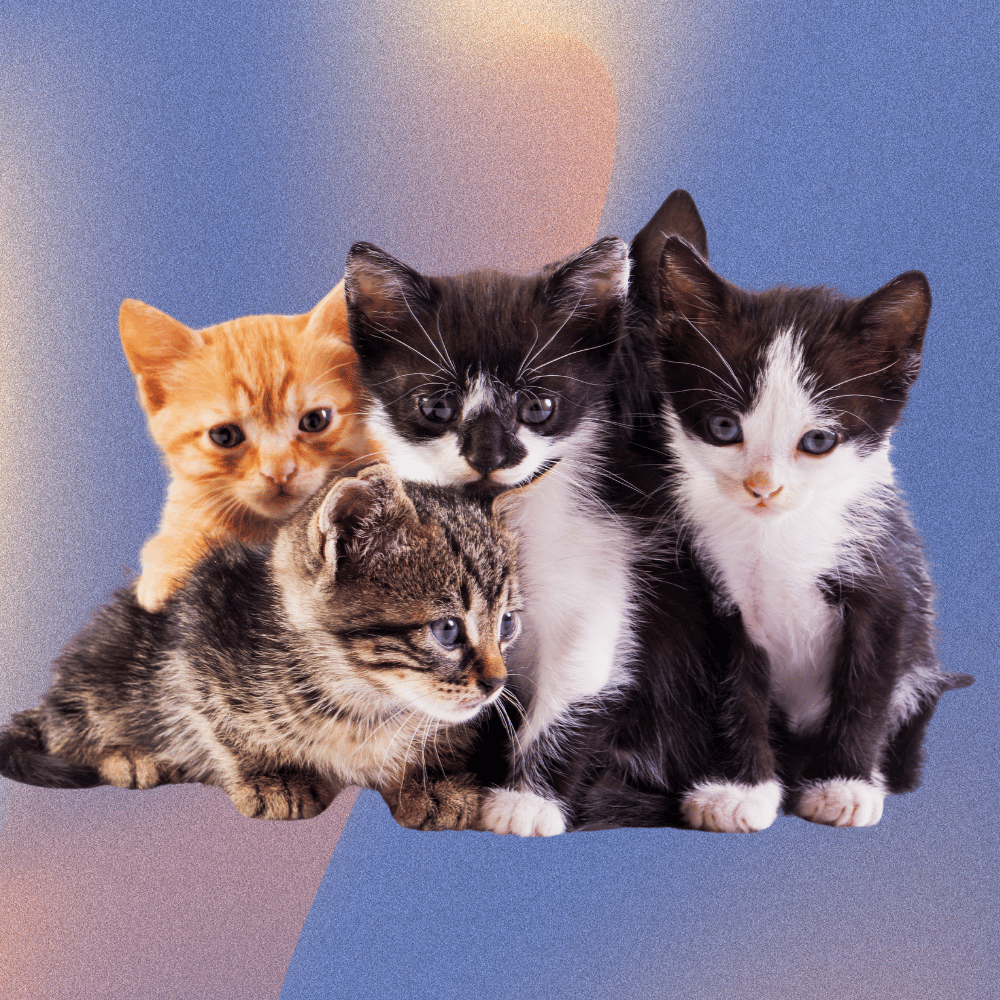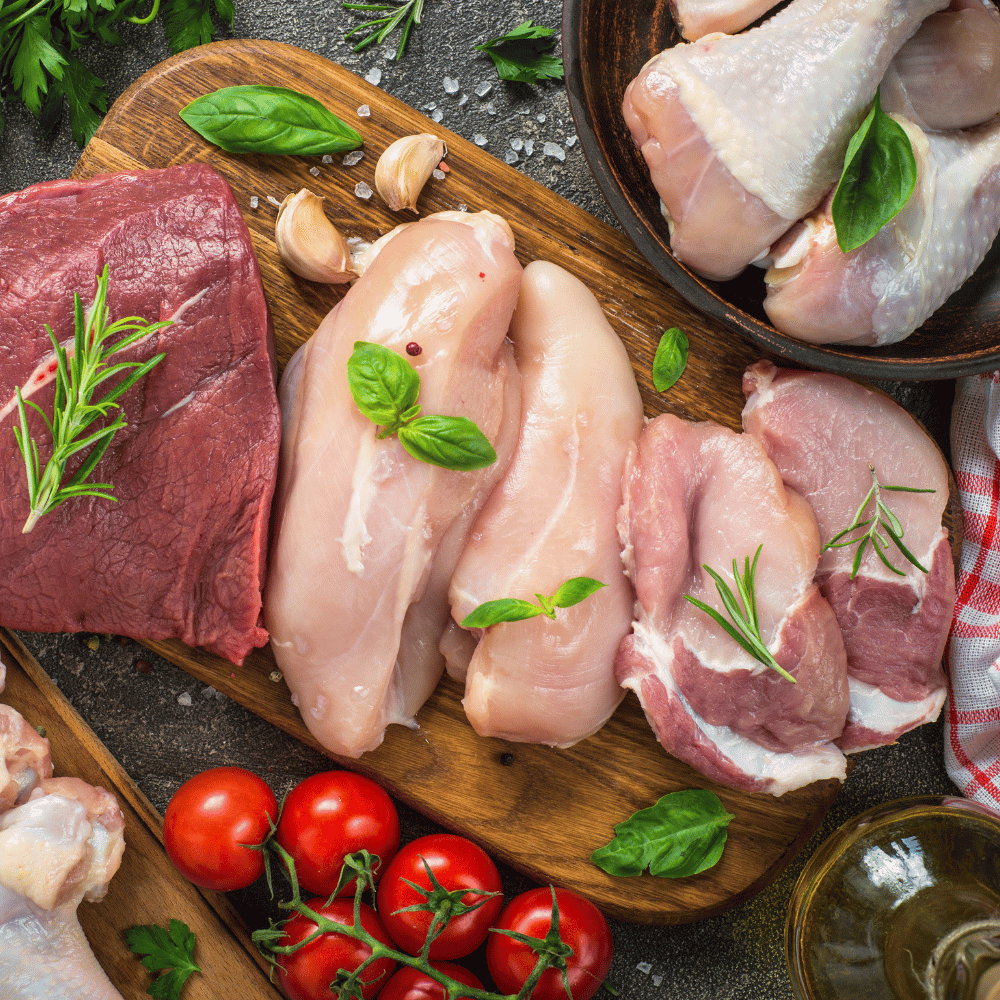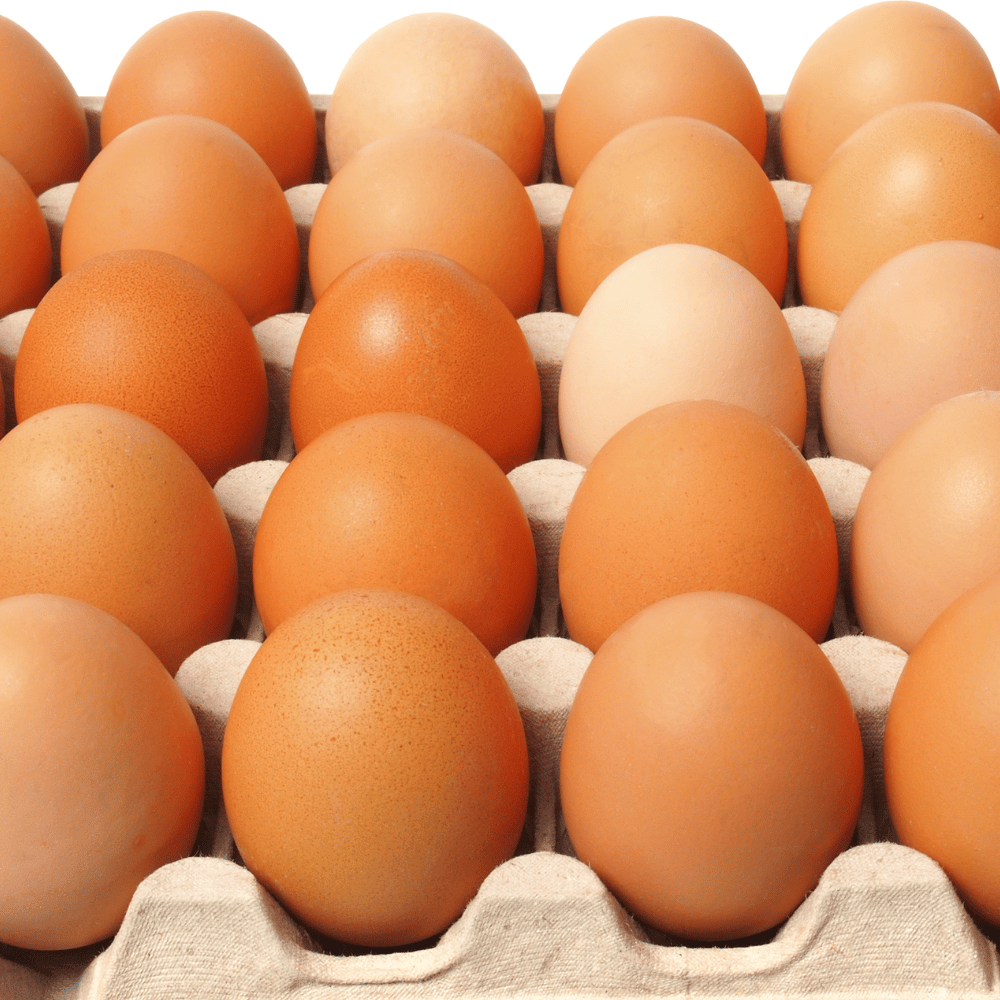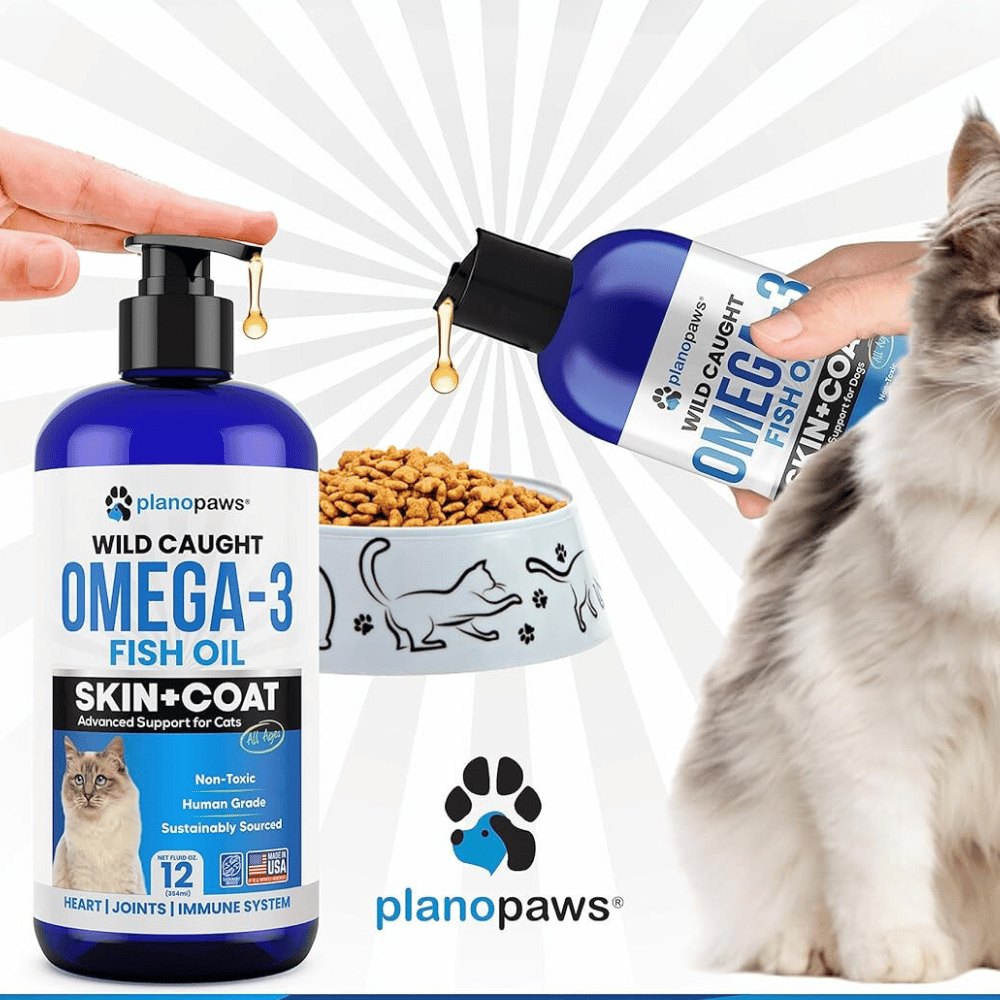Key Takeaways:
- Understanding what foods cats can eat is crucial for maintaining their health and well-being.
- A balanced diet with the right mix of commercial cat foods and safe human foods can provide all the necessary nutrients.
- Always introduce new foods slowly to your cat's diet to prevent digestive upset.

Cats are fascinating creatures with specific dietary needs that every pet parent should be aware of. As obligate carnivores, cats require a diet rich in animal protein to thrive. However, the question often arises: beyond commercial cat foods, what human foods can cats eat safely?
This article will delve into the various human foods and groups that are safe for feline consumption, providing a detailed guide for pet parents who wish to offer their furry friends a healthy treat or two.
The Essentials of a Cat's Diet
Cats need a balanced diet that includes high-quality commercial cat foods designed to meet their nutritional needs. These foods are formulated with the right balance of proteins, fats, carbohydrates, vitamins, and minerals. Many cat foods also contain amino acids like taurine, which are essential for healthy cats.
Human Foods Cats Can Enjoy
While many human-made foods of cats are off-limits, some can be a healthy snack for your feline friend. Cooked meat such as chicken, turkey, and lean meats can be a delicious treat for most cats. Always ensure the meat is cooked thoroughly to avoid the risk of foodborne illnesses.

The Perils of Raw Meats and Fish
Avoid raw meat and raw fish as they can make your cat sick. Raw meats may contain harmful bacteria, and even raw meat and fish can deplete essential nutrients like vitamin B, leading to serious health issues.
Cooked fish, in small amounts, can be a tasty treat, but avoid feeding oily fish frequently as it can lead to vitamin E deficiency.

Vegetables Cats Can Eat
Some vegetables cats can eat include steamed broccoli and green beans, which can be a healthy occasional treat. Pureed pumpkin is another vegetable known for its digestive benefits. However, always introduce these foods slowly to prevent stomach upset.
Fruits: A Sweet Surprise
Not all fruits are safe for cats can eat, but peeled apples (without the seeds) can provide some nutritional benefits. Always serve fruits in moderation as an occasional treat and avoid any with toxic effects, such as grapes or raisins.

Dairy: A Common Misconception
Contrary to popular belief, many cats tend to be lactose intolerant. While kittens eat their mother's milk, adult cats often lose the ability to process dairy as they age. It's best to avoid giving your cat milk or cheese to prevent digestive upset.
The Danger of Bones and Fat
Cooked bones can be a choking hazard and can also splinter, causing internal damage. Similarly, too much fat can lead to obesity and other health issues. Stick to lean protein sources and avoid feeding your cat any cooked meat, bones or high-fat foods.
Grains and Legumes: Are They Necessary?
Cats do not require grains in their diet, but some, like brown rice, can be a safe addition in small amounts. However, there's no nutritional need for cats to consume grains, so they should only be given occasionally.
Treats and Their Place in a Cat's Diet
Cat treats can be a tasty snack, but they should not exceed 10% of your cat's daily calorie intake. Overindulgence can lead to obesity and other health problems. Choose healthy cat treats that complement your cat's diet.

Foods to Avoid at All Costs
Certain foods can be toxic to cats and should be avoided entirely. These include chocolate (especially dark chocolate), caffeine, alcohol, onions, garlic, and sugar-free gum containing xylitol.
These can cause serious health issues and even be fatal. Sure, let's expand the article with two new sections that will provide valuable information to cat owners.

Can Cats Have a Taste of Human Breakfast Staples?
Cats are often curious about their owner's meals, but not all human food is safe for our feline friends. When it comes to breakfast staples, cat owners should be cautious with cat raw eggs.
While a tiny nibble of cooked egg can be a protein-rich treat, cat raw eggs are a no-go due to the risk of salmonella and a protein called avidin that can interfere with the absorption of the B vitamin biotin. This can lead to skin and coat issues. It's best to keep your kitty's diet clear of raw eggs and instead offer cooked ones in moderation.
On the other hand, some breakfast items should be avoided entirely. For instance, sugar-free gum and certain cereals can contain xylitol, an artificial sweetener that's toxic to human foods cats have, leading to an upset stomach or more severe health issues.
Always check the ingredients of your food before sharing it with your furry friend, and remember that cats are obligate carnivores, so their digestive system is not designed to handle a lot of human food. Stick to cat-safe options to prevent any nutritional differences that could harm your pet.

Understanding the Nutritional Needs of Kittens Versus Senior Cats
The nutritional needs of cats can change dramatically from the time they are kittens to when they become seniors. Kittens require a diet rich in protein and fat to support their rapid growth and development.
Mother's milk provides the perfect balance of nutrients for newborns, but as they wean, cat owners should transition them to high-quality kitten food that meets their increased energy demands. It's essential to monitor a kitten's diet closely to ensure they're getting enough calories but not too many, as overfeeding can lead to obesity.
As cats age, their metabolism slows down, and their daily calorie intake needs to adjust accordingly. Senior cats may also face health issues that require dietary changes, such as lower protein levels to ease the burden on the kidneys or added fiber to support the digestive system.
Some older cats may benefit from added vitamin C and other supplements to bolster their immune system. Cat owners must understand the nutritional difference between life stages and consult with a veterinarian to tailor their furry friend's diet to their specific needs.
The Significance of Monitoring a Cat's Daily Calorie Intake
When considering the foods of the foods cats can eat, it's crucial to pay attention to a cat's daily calorie intake. Just like humans, cats require a balanced intake of calories to maintain their health and vitality.
Overfeeding can lead to obesity, which is a growing concern among indoor cats. A cat's diet should be tailored to their specific needs, which can vary based on age, activity level, and health status. Consulting with a veterinarian can help determine the appropriate calorie range to keep your kitty healthy and happy.
To manage your cat's diet effectively, it's essential to understand the caloric content of their food. Whether you're feeding commercial cat food or homemade meals, the calorie count should be monitored.
Treats, although tempting, should only constitute a small percentage of a cat's daily calorie intake to prevent weight gain. Remember, a lean cat is typically a healthier cat, so keeping an eye on those calories is a key part of responsible pet parenting.

The Importance of Mother's Milk and Alternatives for Kittens
Mother's milk is the ideal food for newborn kittens, providing the perfect balance of nutrients necessary for growth and development. In the early stages of a kitten's diet, mother's milk contains antibodies that help protect against diseases.
If a kitten is unable to nurse, it's important to find a suitable replacement, such as a high-quality kitten milk replacer, which mimics the nutritional profile of the mother's milk. Never give kittens cow's milk, as it can cause digestive upset and lacks many cats the essential nutrients that a feline's diet requires.
As kittens grow, their dietary needs change. Around the age of four to six weeks, they can start transitioning to solid food while still supplementing with their mother's milk or formula. This transition should be gradual to allow the kitten's digestive system to adapt.
High-quality kitten food, rich in protein and calories, is essential during this growth phase to ensure proper development. Always ensure fresh water is available, as hydration plays a critical role in a growing kitty's diet.
Supplements: When Are They Needed?
While a balanced diet should provide all the necessary nutrients, supplements like fish oil can be beneficial, especially for skin and coat health. Always consult with a veterinarian before adding fish oil or any supplements to your cat's diet.
The Role of Water in a Cat's Diet
Hydration is as important as food for cats. Ensure your cat has access to fresh water at all times, as it aids in digestion and overall health. Some cats may enjoy coconut milk as a tasty and healthy treat too, but it should not replace water.
Transitioning to New Foods
When introducing new foods to your cat's diet, do so gradually to avoid digestive upset. Start with small amounts and observe your cat for any adverse reactions. This will help you determine what foods your cat can eat safely.
Understanding Food Allergies and Sensitivities
Just like humans, cats can have food allergies or sensitivities. If you notice signs of an allergic reaction, such as itching or gastrointestinal issues, consult your veterinarian. They can help identify the cause and adjust your cat's diet accordingly.
The Impact of Age on Diet
Kittens eat differently than adult, cats eat, and senior cats have their own nutritional needs. Kitten food is designed to support growth, while senior cat foods are formulated to maintain health in older cats. Adjust your cat's diet as they age to meet their changing needs.
The Importance of Portion Control
Monitoring your cat's daily calorie intake is essential to prevent obesity. Use feeding guides on commercial cat foods as a starting point and adjust based on your cat's activity level and weight.
Special Diets for Health Conditions
Cats with health conditions like kidney disease may require special diets. These diets are formulated to support their health and manage symptoms. Always follow your veterinarian's recommendations when feeding a cat with health issues.
The Debate Over Homemade Cat Foods
Some pet parents opt for homemade cat foods, but it's crucial to ensure they are nutritionally complete. Consult with a veterinarian or a pet nutritionist to create a balanced diet if you choose this route.
The Risks of Overfeeding Treats
While it's tempting to give feed your cat a tasty snack, overfeeding treats can lead to health problems. Stick to the recommended amount and choose treats that offer nutritional benefits.
The Bottom Line on Cat Nutrition
A healthy diet is the cornerstone of your cat's well-being. Focus on providing healthy cats with a balanced diet with the right mix of commercial cat foods and safe human foods, and always monitor your cat's reaction to new foods.
SwagScale Summary
Feeding your cat a balanced and nutritious diet is essential for their health. While commercial cat foods should form the basis of their diet, certain human foods can be included as treats.
It's important to avoid foods that can be harmful to cats and to introduce new foods slowly. Always consult with a veterinarian to ensure your cat's dietary needs are being met, especially if they have specific health conditions.
Your Cat Food Guru,
Kim
FAQ Section
Can cats eat chocolate or drink milk?
No, chocolate is toxic to cats, and most adult cats are lactose intolerant. It's best to avoid giving these to your cat.
How much should I feed my cat?
The amount to feed your cat food depends on their size, age, and activity level. Refer to the feeding guide on commercial cat food packaging and consult with your vet for personalized advice.
Are there any human foods that are safe for cats to eat?
Yes, some safe human foods for cats include cooked lean meats, certain vegetables like steamed broccoli, and small amounts of fruits like peeled apples. Always introduce these human foods very slowly and in moderation.








